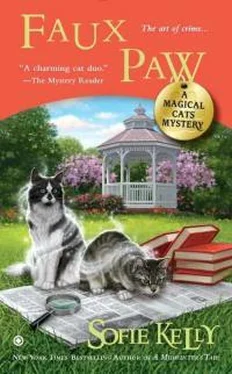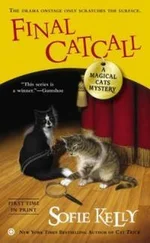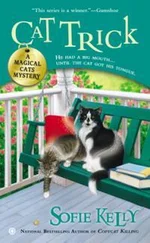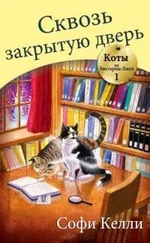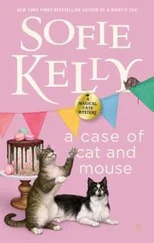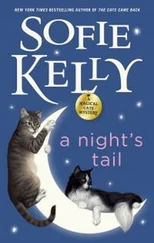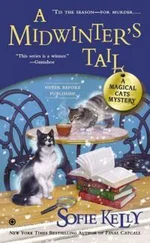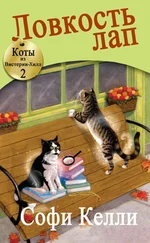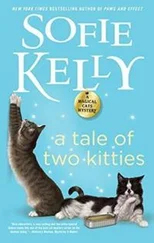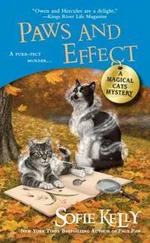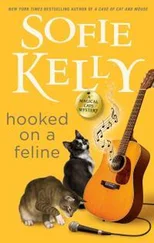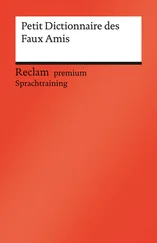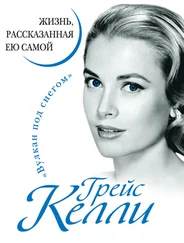Owen gave a snippy meow and turned his head so he wasn’t looking at me.
“Don’t do that again,” I warned, glaring at him. I wondered if as far as he was concerned all I’d been saying was “blah, blah, blah,” for the last minute.
I went to the sink and washed my hands. When I turned around again Owen was studying my things by the door.
“Mrrr?” he asked.
“I’m going out to feed the cats in the morning,” I said in answer to what I was assuming was his question. “And before you ask, no, Marcus isn’t going with me.”
He cocked his head to one side.
“He’s working. Some new information in the case.” I blew out a breath. “I’m starting to think we’re never going to find Margo’s killer.”
“Mrr,” Owen said again.
“It’s not Rena and I’m glad about that. I don’t know her very well, but I like what I know.” I checked the back door, making sure it was locked.
Owen was still watching me.
If anyone heard me having a one-sided conversation with a cat, they probably would have thought I was more than a little delusional, but the fact was, saying it all out loud helped me make sense of things. And the conversation didn’t usually feel so one-sided, although I wasn’t going to admit that to anyone.
I made myself a cup of cocoa, put three marshmallows on top and sat at the table with my cup, quickly giving myself a marshmallow mustache. As much as I enjoyed a cup of coffee, you couldn’t put marshmallows on top.
“Everything seems to be tied to that picture,” I said. “Everything comes back to that.”
Owen launched himself onto my lap and sniffed in the direction of my mug. “Freeze, mister,” I warned, putting one arm around him.
He looked up at me, all furry gray tabby innocence.
“Marshmallows are not cat food,” I said, frowning at him. “Not in this life or any other.”
He made a sound a lot like a sigh.
“Yes, I know, your life is so hard.” I leaned down and kissed the top of his head. “And I meant what I said before: Stay away from that grackle or your brother is going to destroy every chicken you have. Think of it this way: Maggie is your friend and the grackle is Hercules’s friend . . . sort of.”
Owen made a face, which could have meant he was considering my words or that he was wondering when I was going to stop talking.
I picked up my mug and took another drink.
My computer was still on the table. With both of my hands occupied, Owen took the opportunity to stretch out a paw and touch the keyboard, waking the laptop up. He looked at me again, expectantly, it seemed to me.
“Okay, maybe we should see what we can find out about the history of that drawing,” I said, pushing my mug to one side and pulling the computer closer.
Owen immediately turned to look at the counter. He meowed softly.
“Yes, I suppose the research would go better with a couple of stinky crackers,” I said. I got up, set him on the chair and got the crackers for him. When I turned back around he was up on his hind legs, looking at the computer screen with one paw on the edge of the keyboard.
I swept him onto my lap again and held out a cracker. He took it from me and murped a thank-you.
I opened my Web browser and typed in my favorite search engine. “You have marshmallow on your whisker,” I said, keeping my eyes on the screen.
He dropped his head and took a couple of furtive swipes at his furry face.
The history of the Weston drawing was, I discovered, a little murky. It had turned up almost fifty years ago in the private collection of a New York businessman, although there was no provenance with the piece and no record of where or when he’d purchased it. It had been believed that the drawing was part of a collection of Weston’s work housed at the Butler Institute of American Art. Since there were photographs of the drawing from more than one exhibit at the museum, some people believed the piece had been stolen, but the institute had no paperwork to back up the claim.
“Interesting,” I said to Owen, raising an eyebrow, Mr. Spock style.
His response was to paw at the touch pad and bring up another site.
Charles Holmes had purchased the drawing for his private collection, although he had been generous about lending it and other artwork in his collection for exhibit as long as the displays were accessible to as much of the general public as possible. Before his death, Holmes had agreed to loan the Weston drawing and two other watercolors for this tour because it was taking the artwork to an audience that didn’t usually get to see such pieces.
There had been rumblings about the authenticity of the drawing for decades, I discovered, but if Charles Holmes had been aware of it—and it was hard to believe he hadn’t—I couldn’t find any public comments he’d made on the subject.
I leaned back in my chair and picked up my mug. My cocoa was cold. I got up to warm it up and set Owen on the seat again. “What do you think?” I said as I waited for the microwave. “Should we look up this generation?”
“Merow!” he exclaimed with great enthusiasm, which was probably more for the jar of peanut butter I’d just taken down from the cupboard than for my idea.
Once I had a cup of hot chocolate that was actually hot and a piece of peanut butter toast, I went back to the computer to see what I could find about Marshall and Diana Holmes.
Marshall Holmes was Charles’s only child. He’d taken over his father’s grocery store chain and managed to make the business even more successful, something that often didn’t happen when a business was handed down from parent to child.
Diana Holmes was the senior Holmes’s stepdaughter, the only child of his second wife, Catherine. Charles Holmes had raised Diana from the time she was eight years old and by all accounts considered her to be his child in every way. Diana Holmes ran the Charles and Catherine Holmes Charitable Foundation and had increased its endowment by almost thirty percent in the five years she’d been in charge.
There were so many photos of both Marshall and Diana online. Marshall sweaty and beaming after a marathon, cutting a ribbon at the opening of a new store, and giving the eulogy at his father’s funeral wearing a dark suit and somber expression. There was Diana in a short sequined dress with a ventriloquist’s dummy in a variety show for charity, and serving at a downtown Chicago soup kitchen.
“So we know both Diana and Marshall Holmes are successful,” I said to the cat, letting him lick a dab of peanut butter from my finger. “But what are they like as people?”
He was too busy getting every bit of peanut butter to have an opinion.
I thought about my encounters with Marshall and Diana. They had both been very pleasant and well spoken, but something about the way they had interacted had made me wonder if they were in agreement on how to handle Charles Holmes’s art collection. According to what I was reading online, it had been left equally to both of them.
I lifted my hair and let it fall against my neck. “So. Any ideas?” I said to Owen.
His response was to hop down off my lap and head for the back door. It was a warm evening so I’d left it open. He headed purposefully into the porch. After a moment I heard him meow. Clearly he wanted out and didn’t really care if I learned any more about the Holmes siblings.
“I’m coming,” I said.
Owen was sitting in front of the outside door. I opened it for him, but instead of going outside he just poked his head out, looked across the back lawn and meowed.
“Go if you’re going, please,” I said.
He didn’t move.
“Owen,” I said sharply. “I’m not you’re doorman . . . doorwoman, doorperson, whatever the politically correct term is. In or out.”
Читать дальше
